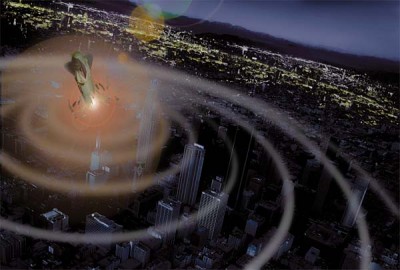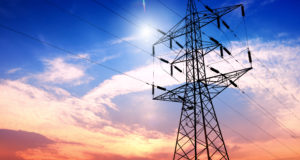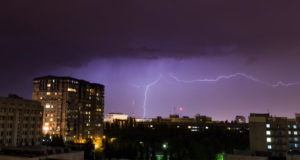 If the power grid fails due to an EMP attack, millions of lives could be lost and the economy would take a nose dive that could take years from which to recover. That’s common knowledge among many Americans, but when someone like billionaire hedge fund manager and CEO Paul Singer issues a warning about an EMP attack, it’s news.
If the power grid fails due to an EMP attack, millions of lives could be lost and the economy would take a nose dive that could take years from which to recover. That’s common knowledge among many Americans, but when someone like billionaire hedge fund manager and CEO Paul Singer issues a warning about an EMP attack, it’s news.
Singer told clients that a power grid blackout sparked by an electromagnetic surge is the “most significant danger” facing the world.
An EMP bomb is a nuclear weapon designed to be detonated at a high altitude in order to create extremely powerful electromagnetic pulses. Such pulses would not only cause the lights to go out, but completely destroy electrical devises and the computer systems in modern vehicles. Planes would fall from the sky.
“While these pages are typically chock full of scary or depressing scenarios, there is one risk that is head-and-shoulders above all the rest in terms of the scope of potential damage adjusted for the likelihood of occurrence,” Singer wrote to clients, as CNBC reported. “Even horrendous nuclear war, except in its most extreme form, can [be] a relatively localized issue, and the threat from asteroids can (possibly) be mitigated.”
Singer continued, “(A natural EMP event) today would cause a massive disruption to the electric grid, possibly shutting it down entirely for months or longer, with unimaginable consequences. Only two years ago, the sun let loose with a Carrington-magnitude burst, but the position of the earth at the time prevented the burst from hitting it. The chances of additional events of such magnitude may be far greater than most people think.”
Harness the power of the sun when the power goes out…
Had that 2012 solar storm Singer referenced occurred just nine days earlier, America may have experienced a coast-to-coast blackout similar to the 1859 “Carrington event” that ruined telegraph machines, the most advanced technological device of the day.
Singer’s letter to clients encouraged them to call on leaders to protect the antiquated grid. He also said the government and other groups should be stockpiling spare parts and create an emergency response plan.
“We think that raising people’s consciousness about what should be a bipartisan push to make the country and the world safer from this kind of event is a good thing to do,” Singer concluded.
EMP threats from North Korea should also be taken very seriously, according to former CIA Director James Woolsey. The Asian country will reportedly soon be capable of launching an electromagnetic pulse attack against America, if the intelligence expert is correct. Woolsey is calling for the Obama administration and Congress to upgrade the nation’s missile defense systems.
“There is now an increasing likelihood that rogue nations such as North Korea, and before long, most likely, Iran, will soon match Russia and China in that they will have the primary ingredients for an EMP attack,” Woolsey wrote in a letter to a US House committee. “We must change our policy to assess these threats and deploy defenses against them.”
A congressionally appointed EMP Commission estimated that “within 12 months of an EMP event two-thirds of the U.S. population would likely perish from starvation, disease, and societal breakdown.” Other estimates put the loss at closer to 90 percent.
U.S. Representative Scott Perry (Pa.) also addressed the possibility of an EMP attack during a House Committee on Homeland Security hearing in May. Perry said the consequences of an EMP attack would be “catastrophic” and that all power systems would cease to function.
“This could cascade into interdependent infrastructure such as water, gas, and telecommunications,” Perry said. “While we understand this is an extreme case we must always be prepared in case a rogue state decides to utilize this technology.”
Are you prepared to survive (or even thrive) if the power grid goes down as a result of an EMP attack or solar flare? Tell us in the comments section below.
Sign up for Off The Grid News’ weekly email and stay informed about the issues important to you
 Off The Grid News Better Ideas For Off The Grid Living
Off The Grid News Better Ideas For Off The Grid Living




